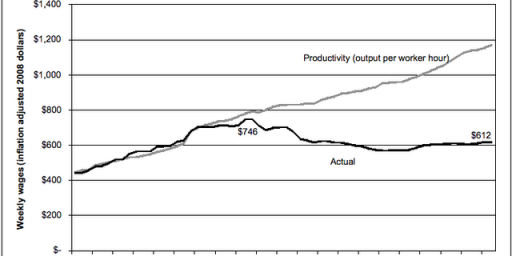Should We Worry About the Current Accounts Deficit?
According to Maurices Obstfeld and Kenneth Rogoff we should.
In The Unsustainable U.S. Current Account Position Revisited (NBER Working Paper No. 10869), Obstfeld and Rogoff update their earlier work and extend it in a number of dimensions, including allowing for global transmission effects. These refinements, together with today’s higher deficit (5.5 percent in 2004 versus 4.4 percent in 2000) lead them to conclude that a very gradual re-equilibration of global current account imbalances would imply a depreciation of 15-20 percent in the real trade-weighted dollar. A sudden rebalancing would involve overshooting, with a doubling or more of the dollar’s long-term movement. The fact that dollar depreciation tends to favor the U.S. net asset position – because the bulk of U.S. liabilities are effectively indexed to the dollar whereas only roughly half of assets are — turns out to be relatively unimportant to this calibration….
Obstfeld and Rogoff consider a number of possible economic developments that might lead to rebalancing, including changes in savings and productivity. Higher foreign productivity helps in the short run if it is focused in the non-traded sector of the economy (where the bulk of output lies). But if foreign productivity increases are disproportionately concentrated in the traded goods sector, the imbalances will get worse before they get better.
The overall conclusion here is that the global economy is more vulnerable today than it seemed four years ago, when it already looked worrisome. If the current account closes up under relatively benign circumstances, then the effects may not be too traumatic, even though there will still likely be a spectacular short-run depreciation of the dollar, 20-40 percent on a trade-weighted basis. But if it occurs concurrently with another major shock, say to security or energy prices, or to consumer confidence, then the global output ramifications could be considerable, with interest rates rising, vulnerabilities in Europe and Asia due to appreciation of their currencies, and risks of financial crises.





